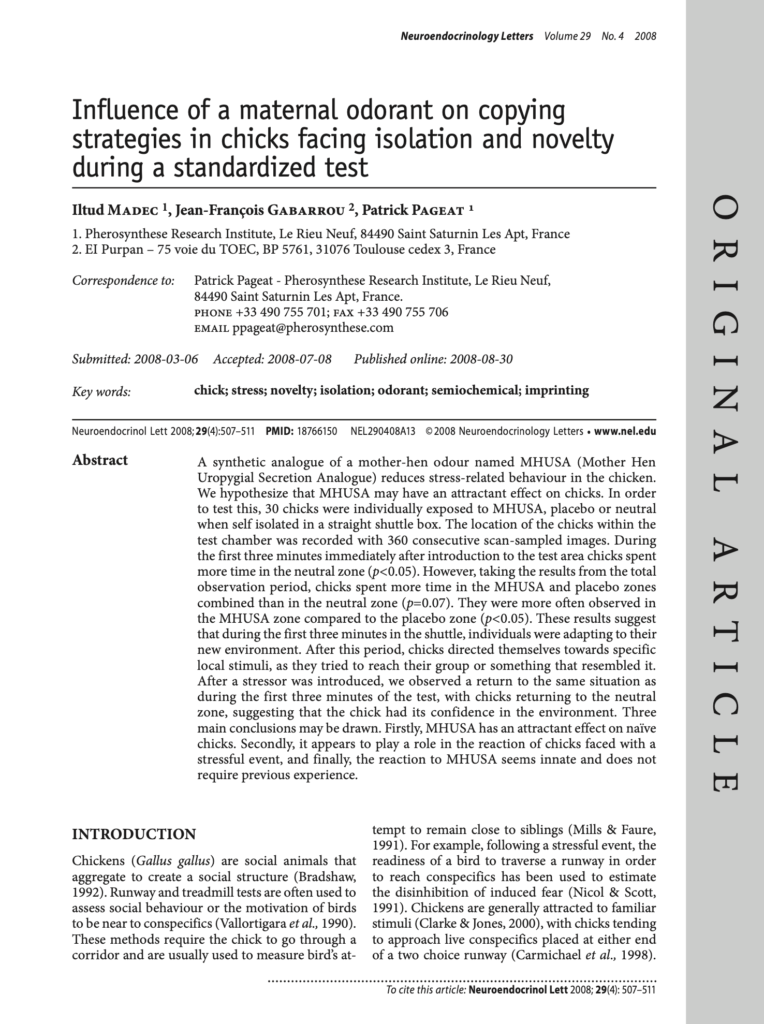Abstract:
A synthetic analogue of a mother-hen odour named MHUSA (Mother Hen Uropygial Secretion Analogue) reduces stress-related behaviour in the chicken. We hypothesize that MHUSA may have an attractant effect on chicks. In order to test this, 30 chicks were individually exposed to MHUSA, placebo or neutral when self isolated in a straight shuttle box. The location of the chicks within the test chamber was recorded with 360 consecutive scan-sampled images. During the first three minutes immediately after introduction to the test area chicks spent more time in the neutral zone (p<0.05). However, taking the results from the total observation period, chicks spent more time in the MHUSA and placebo zones combined than in the neutral zone (p=0.07). They were more often observed in the MHUSA zone compared to the placebo zone (p<0.05). These results suggest that during the first three minutes in the shuttle, individuals were adapting to their new environment. After this period, chicks directed themselves towards specific local stimuli, as they tried to reach their group or something that resembled it. After a stressor was introduced, we observed a return to the same situation as during the first three minutes of the test, with chicks returning to the neutral zone, suggesting that the chick had its confidence in the environment. Three main conclusions may be drawn. Firstly, MHUSA has an attractant effect on naïve chicks. Secondly, it appears to play a role in the reaction of chicks faced with a stressful event, and finally, the reaction to MHUSA seems innate and does not require previous experience.
Auteur: Iltud Madec , Jean-François Gabarrou , Patrick Pageat

